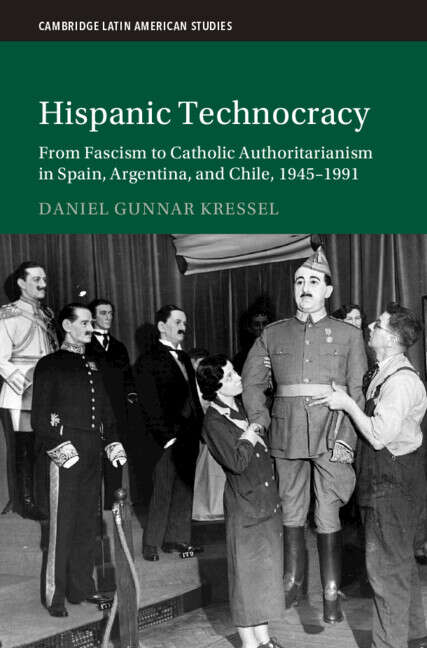Hispanic Technocracy: From Fascism to Catholic Authoritarianism in Spain, Argentina, and Chile, 1945–1991 (Cambridge Latin American Studies)
By:
Sign Up Now!
Already a Member? Log In
You must be logged into Bookshare to access this title.
Learn about membership options,
or view our freely available titles.
- Synopsis
- Hispanic Technocracy explores the emergence, zenith, and demise of a distinctive post-fascist school of thought that materialized as state ideology during the Cold War in three military regimes: Francisco Franco's Spain (1939–1975), Juan Carlos Onganía's Argentina (1966–1973), and Augusto Pinochet's Chile (1973–1988). In this intellectual and cultural history, Daniel Gunnar Kressel examines how Francoist Spain replaced its fascist ideology with an early neoliberal economic model. With the Catholic society Opus Dei at its helm amid its 'economic miracle' of the 1960s, it fostered a modernity that was 'European in the means' and 'Hispanic in the ends.' Kressel illuminates how a transatlantic network of ideologues championed this model in Latin America as an authoritarian state model that was better suited to their modernization process. In turn, he illustrates how Argentine and Chilean ideologues adapted the Francoist ideological toolkit to their political circumstances, thereby transcending the original model.
- Copyright:
- 2025
Book Details
- Book Quality:
- Publisher Quality
- ISBN-13:
- 9781009603034
- Related ISBNs:
- 9781009603041, 9781009603041
- Publisher:
- Cambridge University Press
- Date of Addition:
- 08/14/25
- Copyrighted By:
- Daniel Gunnar Kressel
- Adult content:
- No
- Language:
- English
- Has Image Descriptions:
- No
- Categories:
- History, Nonfiction
- Submitted By:
- Bookshare Staff
- Usage Restrictions:
- This is a copyrighted book.
